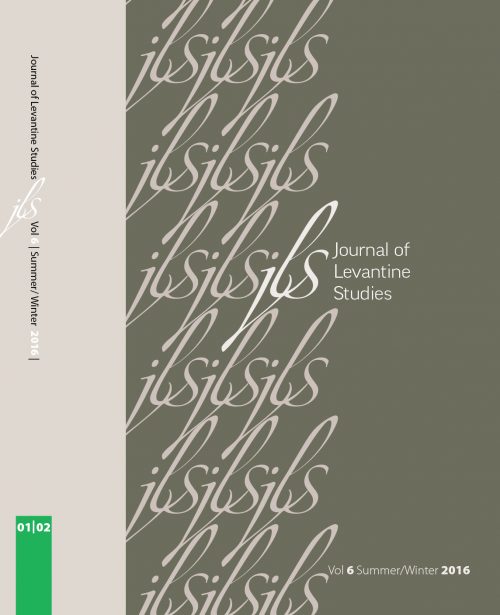-
Add to cartQuick view
James Bryce’s Blue Book as Evidence
Investigations of the Armenian Genocide began as soon as news of the mass killings reached Great Britain in May 1915. The 1916 publication in Britain of The Treatment of the Armenians in the Ottoman Empire as a Parliamentary Blue Book by Viscount James Bryce provided compelling and verifiable evidence of the systematic elimination of the Armenian population of the Ottoman Empire. Today the Blue Book is largely forgotten as a documentary and historical source on the massacres. This article situates the Blue Book in its historical context, arguing that its publication provided the foundation for the evidentiary standard by which the act of genocide is corroborated and judged by the international community. The uses and abuses of the Blue Book at the time by the British government and the humanitarian movement in making the case for genocide reveal the problematic legacy of the first efforts to catalog and document what the Allies labeled during World War I as “crimes against humanity.”
$5.00Free!Add to cartQuick view -
Add to cartQuick view
Lord Bryce and the Armenians in German Propaganda during World War I
Free!It is often assumed that the Armenian Genocide was not debated in wartime Germany and in the newspapers because of censorship. While the full extent of what was happening was indeed not discussed, the violence against the Armenians was debated. One of the focal points in 1915 was an intervention by Lord Bryce and others in the British House of Lords. The debate in the German newspapers around Bryce illustrates the breadth of anti-Armenian sentiment, the scope of discourses justifying the alleged violence, and Germany’s overall entanglement with the Armenian Genocide.
Add to cartQuick view -
Add to cartQuick view
The Armenian Genocide in Interwar Hungarian Political Discourse
Free!This article demonstrates how the Armenian Question and the interpretations of the Armenian Genocide—both justifying and opposing it—shaped political discourse during and after the First World War in Hungary, particularly with regard to the years preceding the Holocaust. The first part briefly presents the evolution of the Armenian Question in the Hungarian public and political discourse from the late nineteenth century up to the First World War. Next the article outlines the diverse nature of Hungarian sources on the Armenian Genocide and its aftermath, corroborating that interwar Hungarian governments had detailed knowledge of the past plight and current situation of Armenians in Turkey. The third part depicts the different manifestations of the discourse on the Armenian Genocide between the two world wars in connection with refugees, anti-Semitism, and Turkish-Hungarian economic and political relations. Finally, some preliminary conclusions are drawn and some possible consequences are examined.
Add to cartQuick view -
Add to cartQuick view
Papal Bulls and Converso Brokers: New Christian Agents at the Service of the Catholic Monarchy in the Roman Curia (1550-1650)
Free!This paper analyzes the presence of the New Christian minority within the system of curial agencies, a key structure for the interests of the Catholic monarchy in Rome. It was a stable network of agents that reflected the multiplicity of territories under the sovereignty of the Spanish Habsburgs and worked alongside the Spanish embassy to the Holy See. Factors explaining the significant converso presence and the curial dynamics behind the creation of the system of agencies are examined, illustrating the operation thereof through various case studies, with special attention to Portugal’s agency. A transversal approach is employed in the study of this system, which has been very poorly understood until now.
Add to cartQuick view -
Add to cartQuick view
The Portuguese Jews in Amsterdam and the Language of Liberty
Free!The exceptional freedoms granted to the Portuguese Jews who began settling in the Netherlands at the very end of the sixteenth century are well known, not only to scholars but to the wider educated public. This article addresses a development scholars have not, however, examined: how Portuguese Jews in the Netherlands came to grasp their new freedoms as an expression of universal political values (rather than mere largesse), and—most significantly—to identify with those values. This requires understanding the essentially religious and ethnocentric meaning of “freedom” in traditional Jewish discourse, where it is presented not as a good in itself but as an instrumental good, in that it facilitated the Jewish people’s proper service of God. Members of the communal elite who had immigrated from Portugal and Spain would have been familiar with the terms liberdade and libertad as abstractions of Iberian political philosophy with no practical significance. But in Amsterdam they would have become familiar with an idea of liberty as a universal right in matters of conscience that pertained to all subjects of a realm, and with an early form of civil religion that embedded the concept of liberty in a uniquely Dutch religiopolitical discourse. A close look at texts generated by Portuguese Jews in seventeenth-century Amsterdam reveals how members of the communal elite came to embrace (at least publicly) a concept of liberty in its universal political meaning, conflating it with a traditional Jewish narrative in a way that dovetailed with the emerging Dutch national narrative.
Add to cartQuick view
- Home
- About JLS
- Issues
- Vol. 9 No. 1 | Summer 2019
- Vol 8 No 2 Winter 2018
- Vol. 8, No. 1: Summer 2018
- Vol. 7, No. 2: Winter 2017
- Vol. 7, 1: Summer 2017
- Vol. 6, Summer/Winter 2016
- Vol. 5, No. 2 Winter 2015
- Vol. 5, No. 1 Summer 2015
- Vol. 4, No. 2 Winter 2014
- Vol. 4, No. 1 Summer 2014
- Vol. 3, No. 2 Winter 2013
- Vol. 3, No. 1 Summer 2013
- Vol. 2, No. 2 Winter 2012
- Vol. 2, No. 1 Summer 2012
- Vol. 1, No. 2 Winter 2011
- Vol. 1, No. 1 Summer 2011
- Blog
- dock-uments
- Subscribe
- Submit
- Contact


